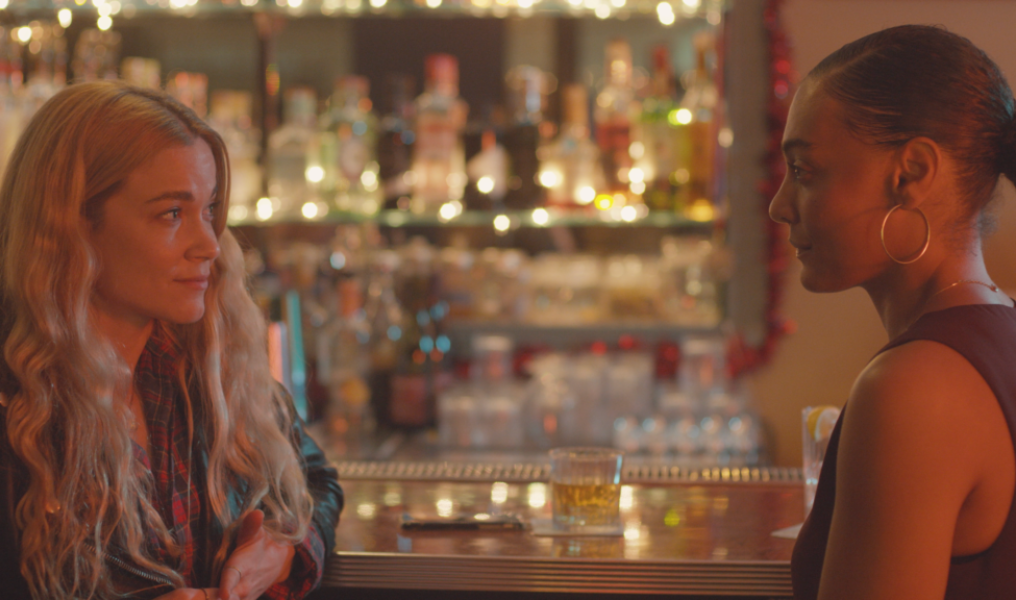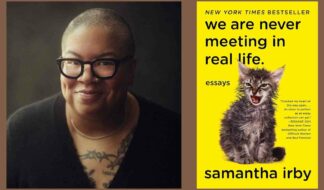When the topic of relationships comes around, particularly in film and TV, it's common for the focus to turn romantic. But in writer and director Erin C. Buckley's brand-new web series "Platonic," that tendency is shifted on its head. Told in brief, five-minute-or-less vignettes, the YouTube-exclusive show focuses on Olive (Summer Spiro), a gay Brooklynite looking for love, and Billy (Ryan King), her straight best friend and series counterpart.
Despite their outward quests for romantic intimacy, "Platonic" explores the two character's powerful non-romantic connections and the friendships that stay strong through all the emotional upset that can come along with dating. A unique addition to the narrative is the fact that it mirrors Buckley's own life from eight years ago when she found herself in Olive's shoes, in a way documenting her romantic relationships via back-and-forth voicemails with her best friend.
Shortly after the series' release, Buckley called to talk about her inspiration for writing "Platonic," why she feels powerful relationships can be undervalued, the benefits of short-form storytelling and what it was like seeing a fictionalized version of herself on screen.
See the trailer here:
Did "Platonic" come directly from your own life or from people you knew?
Both. It's probably one of the most personal things I've ever written. All of it is definitely a fictionalized version of me, but it's based on me. The primary relationship in this piece is based on my friendship with my friend Ryan King who actually plays Billy in the series. So, there's a lot of art imitating life in it. And several of the other actors in the piece were actually playing fictionalized versions of themselves, too. It's really based on versions of us from eight or so years ago when we were single and looking for love in awkward and maybe not all the right places but maintaining ourselves through these sorts of core friendships.
The episodes of this show last only a few minutes each. Why did you choose a short format over a full-length movie, for example?
There's something that I like about the structure of short form that you get to experience things in vignettes. And the way that I wrote the piece, structurally, there was no back and forth and the key protagonists seeing other people and not seeing each other. I don't know that I quite have the answer, I guess that it's just what I felt was natural to me. And in the edit, finding that actually we ended up carving away things. You know, what started out as a longer scene ended up being a much shorter scene, because there was just a lot of carving and cutting away; it was a lot of distillation. My interest in the piece was really to trim away, to cut away any sort of excess to get to the sort of essence of the thing.
Seeing a fictionalized version of yourself on film, do you find yourself looking back at your past self differently?
I think really she's an imperfect protagonist. She's not handling things all the right ways, she's going for all the people who are not quite available and perhaps not quite making herself available to somebody who actually is open to her. So, in looking back, I definitely don't feel that it's horrifying, all the choices and stuff she's making. I guess, for me, the piece is really about acknowledging all of the friendships that take us through all of that and all of those awkward moments in our lives. And I think it's also acknowledging the loneliness that a lot of us feel.
Do you think those platonic connections might feel deeper for people now that COVID-19 is a reality and phone conversations, like the ones Olive has with Billy, are thought of as more valuable?
Yeah, I think you're totally right that we're especially pushed to rely on our devices. I think also the reason I really wanted to put the series out now was that I feel that in a way the colors are, the way that the relationships turned out, sort of the way the relationships the actors intuitively found with each other on set, the physicality, it all sort of reminds me of what our lives were like before this all happened. And we shot in January, so it really was before the pandemic, and I look at moments on screen like cuddling that just are impossibilities right now unless it's with a person you were quarantining with. It did feel like the right time to put it out in the world. I hope it's a little bit of a comfort or a reminder of what our lives will be like after the pandemic.
I know it's a piece about your life, but would you consider creating a second season?
I actually have a full second season written, which is why I was contemplating your earlier question of why the short format. Because you're absolutely right, I think that with the first and second combined it could be a full-length film, actually. I have a full second season written, which I got tightened up over the past month, and I'm starting to share that with folks. I would absolutely love the opportunity to have a second season. A big difference [in season two] for me is the boundaries between platonic and non-platonic relationships start to get blurred a little bit, so that's sort of what I'm excited about for the second season if I have the opportunity to make it.
Do you think platonic relationships are undervalued in our society?
Yeah, 100 percent. I think that's actually why I wrote it. It felt like my primary relationships in my life before I met my partner. I mean, first of all, absolutely, my mom is one of my best friends — so there's certainly family relationships that I think are vital to us. And I think we're all, or most of us, are in search of a partner, but I felt that so much of my life and so much of the richness and the texture in my life is filled by these friendships that I've made. And I do think being a queer person I think we have to build our own families in a way. And so, certainly, I think that "Platonic" is really delving into the sort of gray areas in relationships.
Catch the 10-episode series online here.










